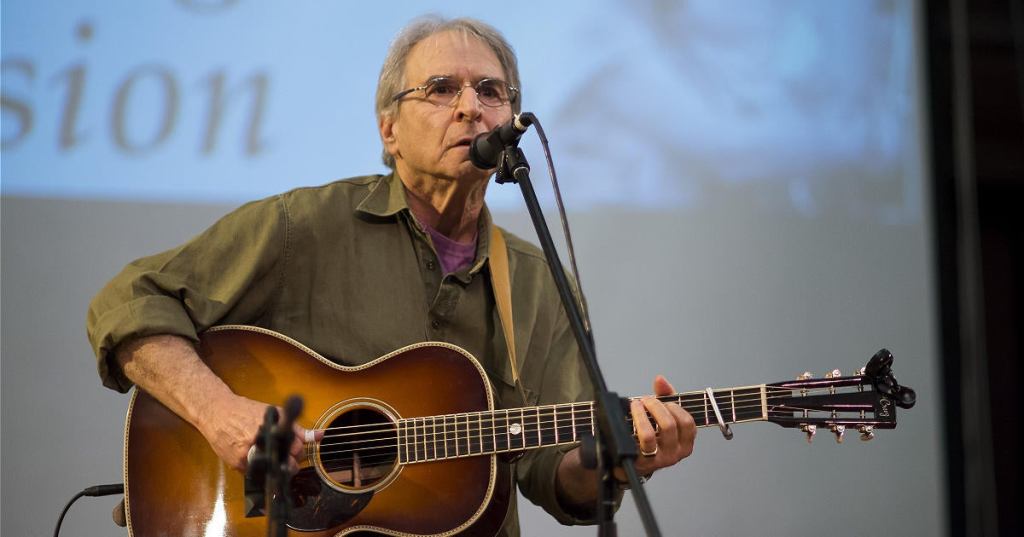Happy Traum, a pivotal figure in the Greenwich Village folk scene of the 1960s and a longtime resident of Woodstock, New York, has passed away at the age of 86. Rolling Stone reported the cause of death was cancer. His passing marks the end of an era, leaving behind a legacy that spans six decades of musical innovation, education, and community building.
Born in the Bronx on May 9, 1938, Traum’s entry into folk music began during his time at the High School of Music & Art. It was there that he discovered traditional American music and became enamored with the works of Pete Seeger and Woody Guthrie. This early exposure ignited a passion that would shape the course of his life and influence countless musicians for generations to come.
Videos by PopCulture.com
Traum’s musical education was largely self-directed. He taught himself to play the guitar and 5-string banjo, honing his skills while working as a folk music counselor at a progressive teenage camp in the Catskill Mountains. To support his studies at New York University, Traum began giving guitar lessons, a practice that would later evolve into a cornerstone of his career, according to TimesUnion.
The 1950s and 1960s saw Traum deeply immersed in the vibrant folk scene centered around Washington Square and Greenwich Village. This period was a creative hotbed, with artists pushing the boundaries of traditional folk music and giving voice to the social and political movements of the time. Traum found himself at the heart of this cultural revolution, rubbing shoulders with figures like Bob Dylan, Phil Ochs, and Peter LaFarge.
In 1963, Traum’s career took a significant turn when he recorded in a studio for the first time. This session, which included luminaries such as Dylan, Seeger, and The Freedom Singers, marked the beginning of Traum’s recording legacy, per Chronogram. As a member of the New World Singers, Traum had the distinction of being part of the first commercially released recording of Dylan’s “Blowin’ in the Wind.”
Traum’s connection with Dylan extended beyond that initial recording. The two would collaborate several times over the years, with Traum providing guitar, banjo, bass, and harmony vocals on tracks that appeared on Bob Dylan’s Greatest Hits, Vol. 2, and later archival releases. This musical partnership was a testament to Traum’s skill and the respect he commanded among his peers.
In 1967, Happy and his wife Jane moved to Woodstock, New York, a decision that would profoundly impact both their lives and the local music scene. It was here that Traum and his brother Artie formed a musical duo that would become a mainstay of the folk circuit for decades. The brothers’ talents extended beyond performance; they produced a series of albums under the title The Woodstock Mountains Revue, which featured a rotating cast of local musicians and helped solidify Woodstock’s reputation as a hub of musical talent.
Perhaps Traum’s most enduring contribution to the world of music was his work in education. In 1965, he authored Fingerpicking Styles for Guitar, the first of many best-selling instruction books. This venture into music education laid the groundwork for Homespun Music Instruction, a company that Happy and Jane Traum founded in 1967, per the outlet.
Homespun Music grew to become a staple of music education, producing and distributing hundreds of instructional videos, CDs, and books covering a wide range of instruments and musical styles. Countless musicians around the world, from novices to professionals, have honed their craft using Homespun’s materials. In many cases, Traum’s efforts through Homespun have been credited with helping to preserve and perpetuate musical traditions that might otherwise have faded away.
Traum’s influence extended far beyond his recorded output and educational materials. He was a fixture in the Woodstock music community, known for his generous spirit and willingness to support his fellow musicians. Levon Helm, the drummer of The Band, once remarked about Happy and his brother Artie in the book Levon Helm: Rock, Roll & Ramble. “Everybody in Woodstock played with the Traums at one time or another. You could always count on them for a gig or two. If you were a musician, you knew them, boy — you were going to work with them or for them or something. Happy and Artie were always in the right spot.”
This spirit of collaboration and community support was evident in the numerous benefit concerts Traum organized and participated in throughout his career. He was always ready to lend his talents to a good cause, whether it was supporting local charities or rallying behind fellow musicians in need.

Traum’s reputation as a kind and approachable figure in the music world led to some unexpected encounters. One such instance occurred in 1978 when the Rolling Stones were rehearsing at Bearsville Studios in Woodstock. Traum, hearing that Mick Jagger was producing an album for reggae star Peter Tosh, offered his services and an autoharp, according to happytraum.com. This led to Traum not only playing on Tosh’s record but also being privy to private rehearsals of the Stones’ upcoming tour. Traum reflected on this experience: “Only a handful of people were watching, including crew members, and I tried to make myself as small and inconspicuous as possible, thinking I could get thrown out at any point.”
The news of Traum’s passing has elicited an outpouring of grief and appreciation from across the music world. Cindy Cashdollar, a longtime friend and collaborator, described him as “ageless” with “a little energy field around him.” She praised his giving nature and ability to bring people together, saying, via TimesUnion, “He was a very giving and buoyant person who really enjoyed life — so aptly named.”
Jorma Kaukonen of Hot Tuna and Jefferson Airplane fame wrote in his blog about the depth of his friendship with Happy and Jane Traum, saying, “I can’t tell you exactly when. But it seems as if we were friends for an eternity.” Kaukonen lauded Traum’s musicianship, noting that he “played and sang with flawless expertise and love.”
Wanda Fischer, host of The Hudson River Sampler on WAMC, summed up the sentiments of many when she said, via the outlet, “I don’t know anyone in the whole music business who didn’t love Happy. He got along with everybody. He played with everybody. He was nice to everybody. He encouraged anybody who wanted to learn music to learn music.”








